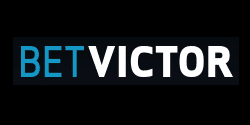Latvian casino sites are subject to strict oversight thanks to gaming laws passed in 2003 that fully legalized and regulated the online gambling industry. Despite a relatively small population of just over two million people, Latvia has managed to attract a number of high-profile gambling brands willing to undergo the thorough vetting process to receive a license and offer their games to locals.
We’ll cover all the details of the law later, but the main thing gamblers should know up front is that it is perfectly legal to play at licensed online casinos in Latvia. Even better, the government has an entire department devoted to monitoring operators to ensure they play by the rules and give players a fair chance in every game.
Let’s begin with a quick look at the top Latvian online casinos licensed for real money games today:
-
Sign Up Bonus100% Deposit Bonus22Bet CasinoClaim Bonus
-
Sign Up Bonus$25 New Player Bonus18+ to Play, T&Cs ApplyBet365 CasinoClaim Bonus
-
Sign Up Bonus50 Free Spins When You Stake £1018+. Play Safe. New customers using Promo code M50 only. Opt in required. 1x per customer. Mining Pots of Gold only. Min £10 stake. Max 50 Free Spins at 10p per spin. Free Spins expire 24 hours from issue. Max redeemable £30. Eligibility rules, game, location, currency, payment-method restrictions and terms and conditions apply. www.begambleaware.org #adWilliam Hill CasinoClaim Bonus
-
Sign Up BonusWager £10 Get £30 + 100 Free Spins18+ to Play, T&Cs ApplyBetVictor CasinoClaim Bonus
-
Sign Up Bonus100% up to £100 instant Welcome BonusT and C apply888 CasinoClaim Bonus
Each of these sites actually hold legitimate licenses issued by the Lotteries and Gambling Supervision Inspection of the Republic of Latvia. Many other operators claim to run Latvian casino sites despite not having a license and essentially operating illegally. Our top picks do hold active licenses and you can see proof for yourself at the IAUI list of licensees.
Players should beware that updates to Latvian gambling law in recent years have changed one critical fact: players who visit unlicensed casino sites can be fined up to €350 per instance. It is no longer safe to visit offshore online casinos. We strongly urge all readers to stick with sites that are licensed and legal in Latvia.
Additionally, the government maintains a blacklist of unlicensed gambling websites that accept Latvian players. Local ISPs are obliged to block access to these sites, although numerous players have reported being able to access many sites that are supposed to be block. Even so, players who choose to visit unlicensed casino sites face the risk of heavy financial penalties.
Our recommendation for players is to stick with licensed online casinos in Latvia. In some countries, players have no choice but to go with foreign gaming websites due to onerous restrictions or low-quality, state-run gambling websites. The Latvian approach is sensible and effective at protecting players without being too overbearing. There are some very solid options to choose from among Latvia’s legal casino sites.
Online Gambling Laws in Latvia
Latvia has regulated gambling to some degree or another since the early 90s. The first real-world casino opened for business in 1991 but there was almost no regulation over gambling at the time. Many other gambling operations sprung up across the country as well with almost zero government oversight.
In many cases, players were treated poorly and the industry as a whole developed a seedy reputation over time. It eventually became clear something had to be done. In 1998, the Latvian government created the Supervision Inspection of the Republic of Latvia (IAUI) in a bid to reign in the industry.
The IAUI was given broad powers to achieve 3 core objectives:
- To ensure safe gambling for consumers, including proper functioning of gambling machines, fair lotteries and enforcing minimum payout percentage standards
- To ensure operators comply with all laws and regulations
- To protect consumer rights and reduce the social risks associated with gambling
Among other duties, the IAUI is responsible for granting licenses to conduct gambling both online and in the real world. The IAUI investigates would-be licensees to determine if they are fit for running brick-and-mortar or online casinos in Latvia.
Latvia officially took up the issue of online gambling in 2006 with the passage of the Gambling and Lotteries Law. This law completely revamped gambling in Latvia, but more importantly, it finally addressed online gambling in particular.
That law remains in effect to this day and requires entities interested in offering online gambling for Latvians to submit a license application for approval to the Lotteries and Gambling Supervisory Inspection. The inspection committee then decided whether or not to award the license to the interested operator.
The application process requires potential operators to submit to the inspection the rules of all games, information about the programs used to run the online casino, an explanation of security measures to be used, the results of an audit from an “independent and internationally approved” laboratory, show financial capability and more. To make a long story short, the licensing process is intended to ensure that only legitimate, qualified operators become licensed to offer online casino games in Latvia.
A number of other regulations have been introduced since then, but that’s the basic overview of how online gambling works in Latvia. We believe the authorities have built an effective licensing and oversight environment that is beneficial to gamblers.
The one downside to the casino licensing system in Latvia is that it is an expensive process and time-consuming process for a country with such a small total population. If Latvia were larger or lawmakers were to streamline the process, we would probably see more big-name online casinos enter the market legally.
Wes Burns co-founded OnlineCasinoSites.com with a mission to help gamblers understand and navigate the regulated online casino market in all countries around the world. Wes is a respected gambling journalist, working in the industry since 2008.





